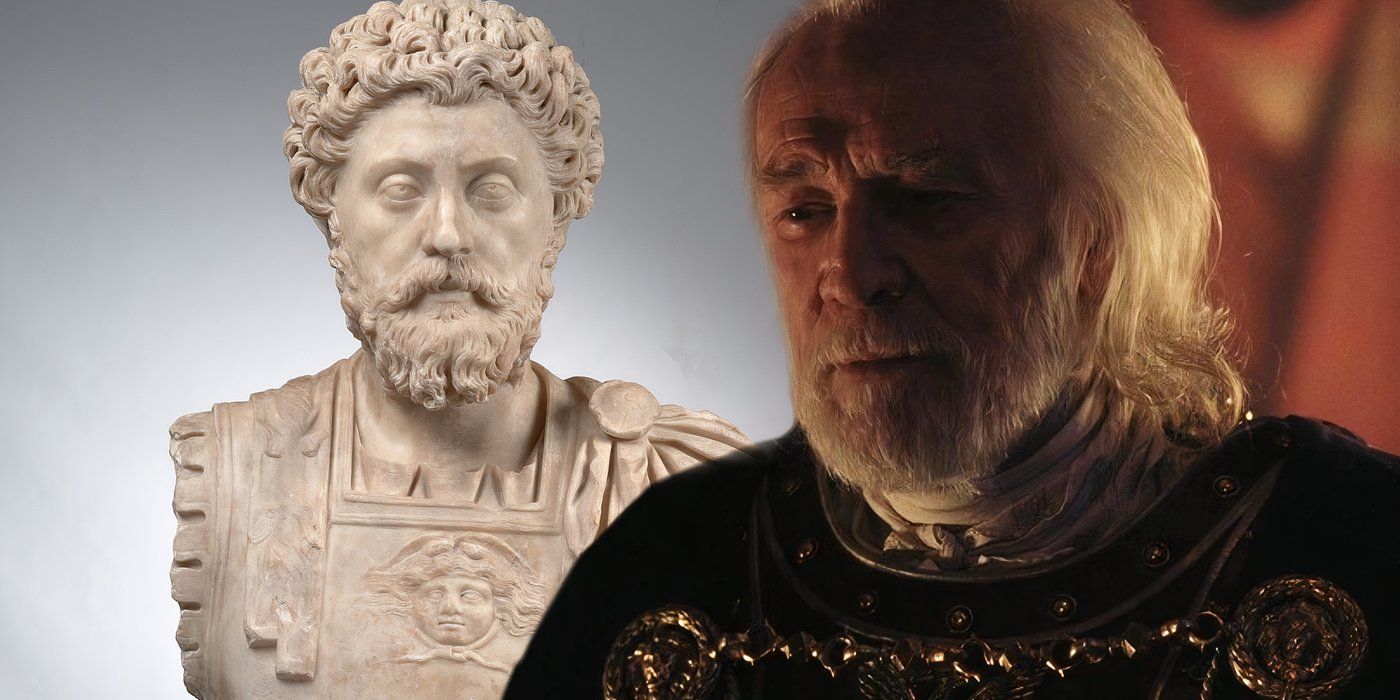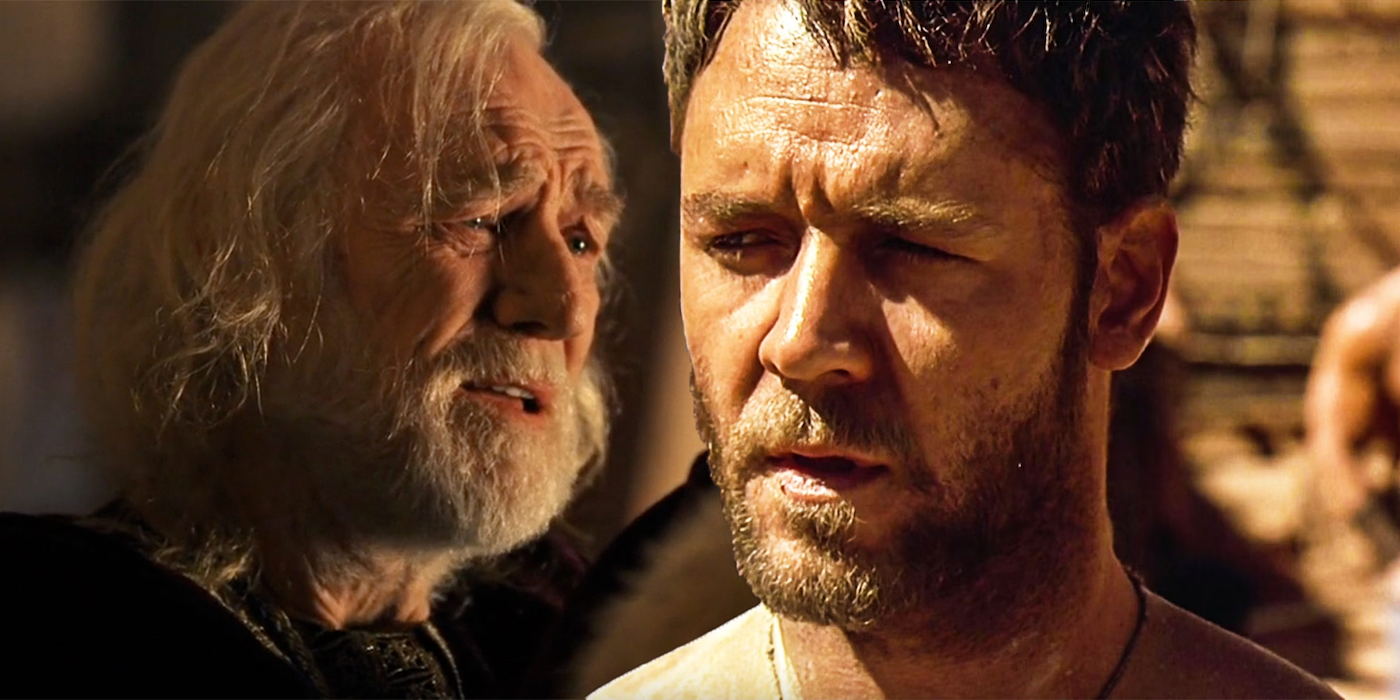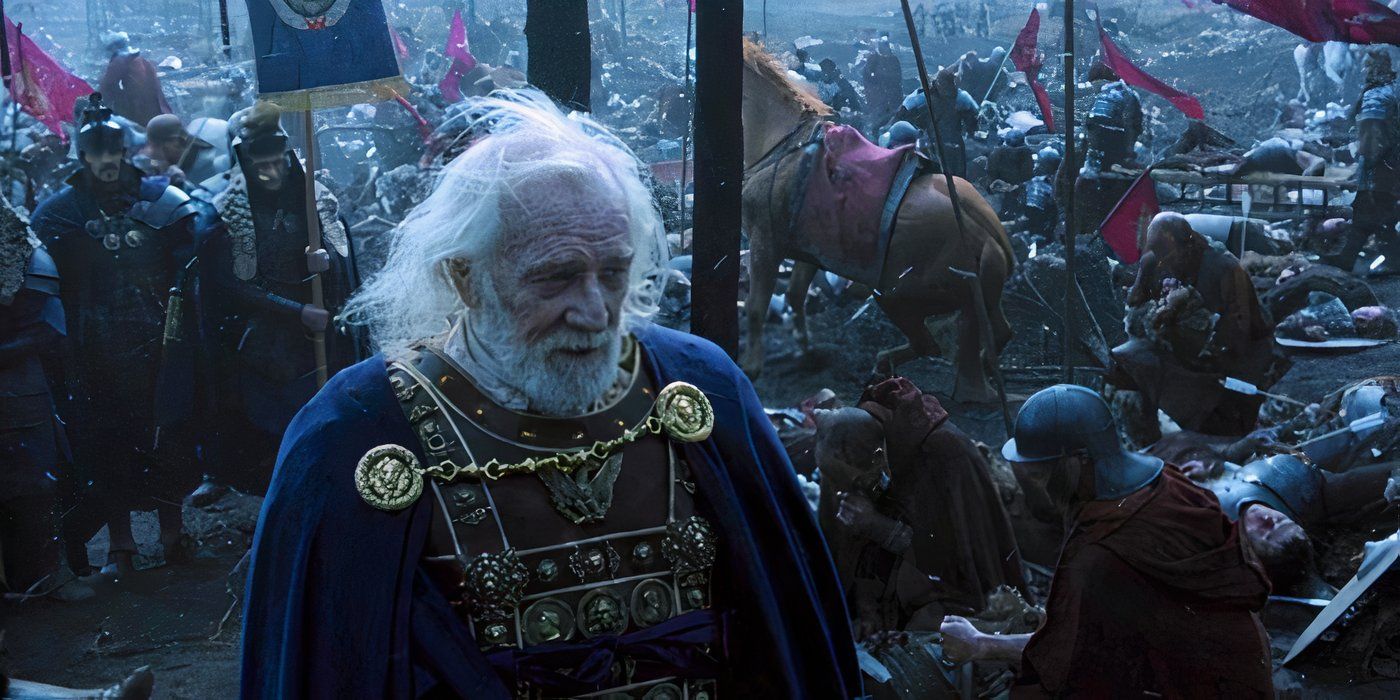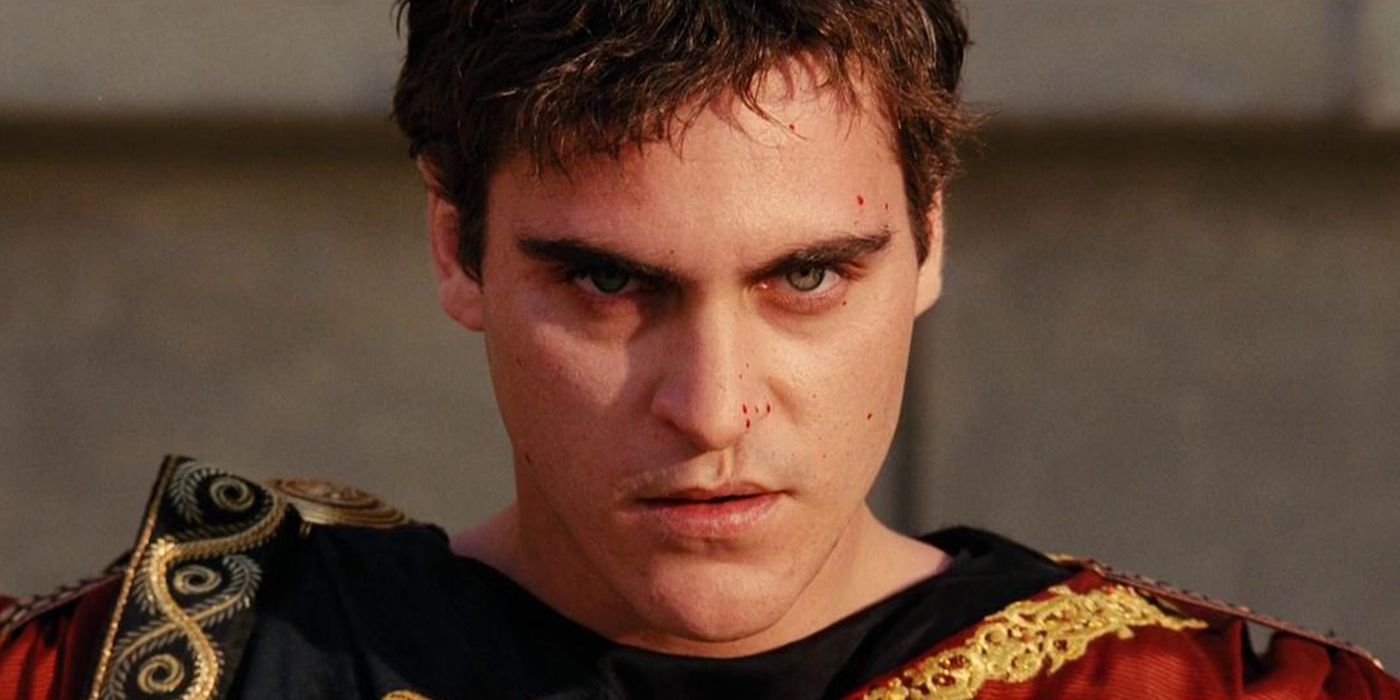
As such, many of Gladiator‘s characters are based on real people; Although Gladiator‘s Maximus Decimus Meridius was not a real person, he was inspired by several influences from Roman history. One character who did actually exist, however, was Emperor Marcus Aurelius, played by Richard Harris in Gladiator‘s cast of characters. Marcus Aurelius’ late life and death were highlighted in Gladiator‘s first act, leaving many wondering if his final days in the film are consistent with what is known of the real historical figure from the time of Ancient Rome.
Marcus Aurelius Died In 180 AD
Gladiator Keeps This Fact Consistent

In real life, Marcus Aurelius came into power in 161 AD. He ruled alongside his adoptive brother, Lucius Verus, the character thought to be the father of Paul Mescal’s character in Gladiator II before the reveal that he is Maximus’ son. In the latter portions of Marcus Aurelius’ reign, he oversaw a war with the Germanic tribes of Northern Europe. These conflicts lasted between 166 and 180 AD and were known as the Marcomannic Wars. During this same period, the Roman Empire suffered from the effects of an illness named the Antonine Plague.
As the war was coming to a close in 180 AD, Marcus Aurelius died. He reportedly died in his military quarters given the war with the Germanic tribes was still ongoing, albeit reaching its end. In Gladiator, Marcus Aurelius’ death is depicted similarly. The opening credits of Gladiator establish the Germanic wars and outline that the film begins in 180 AD as they are winding down. At the end of Gladiator‘s first act, Marcus Aurelius dies in his military quarters in the same year his real-life counterpart was said to.
Marcus Aurelius Is Widely Believed To Have Died From An Illness
The Antonine Plague Is Often Cited As The Cause Of Marcus Aurelius’ Death

As alluded to, the illness known as the Antonine Plague ravaged the Roman Emperor between 165 and 180 AD, likely going even further beyond the latter date. Marcus Aurelius’ brother, Lucius Verus, contracted the illness and died in 169 AD. This plague is said to have been particularly deadly in large Roman cities, as well as within the Roman Army. Overall, it is thought that around 5-10 million people were killed by the Antonine Plague, which accounted for around 10% of the entire Roman Empire’s population at the time.
Given the widespread effects the Antonine Plague had on the Roman Army specifically, it is highly probable that Marcus Aurelius contracted the illness at the end of the Germanic wars…
Given these facts, it is widely speculated that Marcus Aurelius died from this illness. Interestingly, Marcus Aurelius’ death has often been a subject of debate. There are conflicting reports from historians specifically concerning his cause of death, though many agree that he died in his military quarters in his sleep. That said, given the widespread effects the Antonine Plague had on the Roman Army specifically, it is highly probable that Marcus Aurelius contracted the illness at the end of the Germanic wars, dying in 180 AD as a result.
There’s Some Belief Marcus Aurelius Was Actually Assassinated
Some Historians Believe Poison Was The Cause Of Marcus Aurelius’ Death

Most of the debate surrounding Marcus Aurelius’ death is rooted in the belief by some that he was assassinated. Little is known of the more minute, finer details of Aurelius’ passing, leading to a great deal of speculation about how it actually happened. Of course, the effects of the Antonine Plague provide more concrete evidence concerning Marcus Aurelius’ cause of death, but that does not stop many historians from claiming that the Emperor was assassinated.
Of the proposed 70+ Roman Emperors that ruled across 400 or so years, 33 were believed to have been assassinated, adding a level of credence to the theory that Marcus Aurelius was too.
Some claim that Aurelius was poisoned. This is often cited as the cause of death as the effects of poison could be seen as very similar to that of an illness. If Marcus Aurelius was assassinated by blade or blunt force, it is highly likely that these facts would have been passed down through time. However, poison is a much more subtle method of murder, and could have been passed off as the effects of the plague.
After all, assassination was a common way that politicians grasped power in the Roman Empire. The politics of that time were very often power-based, with aspiring senators and other ambitious people within the Empire seeking to gain more power at any opportunity. For this reason, it is not hard to imagine that Marcus Aurelius was assassinated, albeit without there being much in the way of outright evidence. Therefore, this explains why the subject of Marcus Aurelius’ death remains one of debate between common causes or more malicious intent.
How Gladiator Adapts Marcus Aurelius’ Death
Gladiator Incorporates Both Speculated Causes Of Death For Marcus Aurelius










In Gladiator, the final days of Marcus Aurelius’ life are shown. Richard Harris portrays Marcus Aurelius in the movie, and the film outlines his wishes to pass on Rome’s legacy to someone who will allow his work in life to be honored. Marcus chooses Maximus as his successor, imploring the general with a good heart to revert Rome to the ways of a democratic senate so that the strong Empire the former built can be continued by its subjects rather than a power-hungry, immoral leader.
Gladiator implements the various theories that Marcus Aurelius was assassinated into the movie, though with an added layer of cinematic drama due to Commodus’ involvement…
The immoral leader in question is Marcus Aurelius’ son, Commodus, the predecessor of Gladiator II‘s dual Emperors. Commodus is aggrieved at his father’s decision to choose Maximus as his heir over his own flesh and blood. This leads Commodus to strangle his father out of rage and despair, also driven by the lifelong neglect he has suffered at Marcus Aurelius’ hands. Via this plot point, Gladiator implements the various theories that Marcus Aurelius was assassinated into the movie, though with an added layer of cinematic drama due to Commodus’ involvement and the method of murder.
Interestingly though, Gladiator also somewhat incorporates Marcus Aurelius’ apparent illness into the story as well. In the scene in which Maximus is chosen as Marcus’ successor, the latter says to the former, “I am dying, Maximus. When a man sees his end, he wants to know there was some purpose to his life.” This implies that Marcus knows his end is near, either due to his old age or potentially the unspoken illness that ravaged the Roman Empire. Thanks to this line, Gladiator takes both speculative causes of Marcus Aurelius’ real-life death and uses them to the film’s thematic and dramatic advantage.




